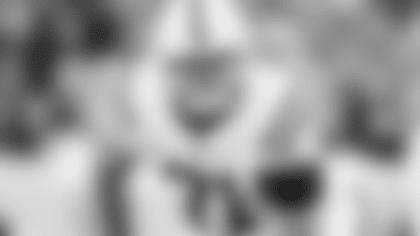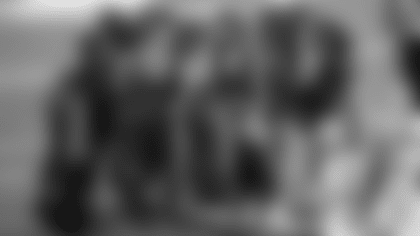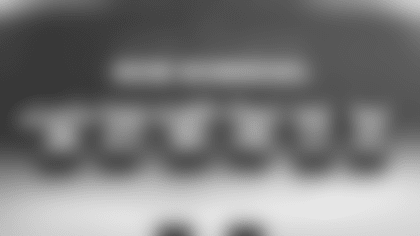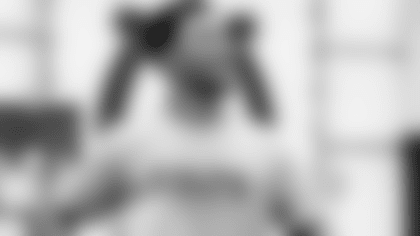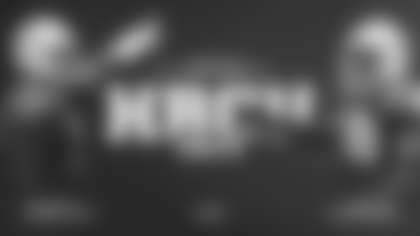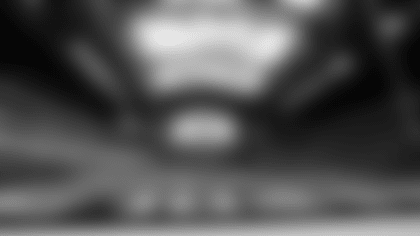What is the geographic area where you have lived or worked that you like the most?
"I've never really lived in a bad place but again, all I need is to go to a 'Quickie-Mart' and the office and I'm good to go. The places have been all different. I really liked it down in North Carolina and South Carolina. Utah was beautiful because you have the outdoors and skiing. Oregon was the same way as Utah. It rains a lot up in the Northwest. I even got to where I liked New Jersey (when at Rutgers). It doesn't really matter to me where I am. I always adapt."
Moving around so much, how was that on your family?
"It's hard on them, it's hard. It's easy for me because I go to the office. Your wife has the hardest time, getting a new house and getting the kids in school. It's hard on the family."
You're not like a lot of people who might tend to find fault with places when they move so much.
"It's easy to do that, but it's more fun to take a positive approach and to seek opportunities to see different things. This profession can lead you to more places than you ever imagined and more places than most people might live. My career has done that, and I always adapt. I liked Champaign, Illinois. The atmosphere of the college was great, as were the people. Oregon was fantastic. You always should take a positive approach to life."
Who is the person most responsible for you to make it to professional football and/or the NFL?
"I'd have to say Jim Fassel. I was with him in college at Utah. He gave me my first Division I job and my first NFL job. We got let go at Utah after five years. I stayed in contact with him. When he got the job with the New York Giants, he hired me. I owe him a lot. He got me in the league. Jim is an interesting guy. He is a positive guy. He's a very positive, upbeat guy."
Do players respond to that type of positive personality better, or to a coach with a tougher style? What do you think works better?
"I think the best thing in coaching is you have to be yourself. Players will be watching you in every circumstance. You have to be the same way consistently. John Fox had a saying, 'You have to be the same guy. Always be the same guy.' Whenever you lose, you're the same guy. When you lose, you're upset about certain things, but you're always the same guy. It can't be one day you're here with one style and the next day you're somewhere else. If you're a little squirrely, you're squirrely. If you're dead serious all the time, that's what you are. You have to be yourself. Players sense it when you are trying to be something else. If you let players know you generally care about them, you want to make them better and you care about them off the field, you have a good chance with them."
Players need supervision on previous levels of the sport, do they need it in the NFL just as much?
"Yes, they do, but you're not as close to the players in the NFL as you might be in college. In college, most of your problems come with players not because you got on them on the field, it's because of what is happening to them off the field. You have to be on them when they don't go to class, or if they miss study hall. You're always on them about this or that. You have your cell phone with you constantly because you might get a call at night when they've done something wrong. You have to guide them."
What is your greatest football moment prior to the NFL and in the NFL?
"Going to the Super Bowl with the Giants in 2000 was a great moment. I wish we had won it, but getting there was an accomplishment. At Oregon (2001), going to the Fiesta Bowl was really neat. We ended up second in the nation. Those are great moments achievement-wise."
Do you have any rituals or superstitions?
"I get to the stadium on the early buses on road games, and I jog around the field a while. I always have jogged, so that is not anything but normal activity for me. I try not to be superstitious. Sometimes you are if you wear a certain shoe or something. Because of my religion, I am Catholic, I try not to be superstitious. I take my faith seriously and when you do that, you try not to have superstitions or rituals. My faith is very important to me."
If you weren't coaching, you certainly would be teaching, right?
"Coaching is teaching. You're held accountable for your teaching in coaching, you really are. A coach who says after a game, 'This guy did well and so did this one, but these other guys didn't,' well, you'd better go out and get yourself a new coach. You have to get all the players to do well. If there were a history teacher and 30 percent of the class didn't pass, you'd better get a new teacher because he or she is only firing at 70 percent (efficiency). That is kind of attitude you have to have."
Who is the most memorable player you have coached?
"I've been very fortunate to be real close to a lot of players. A player I coached and I know he's has some bad press and some things that happened to him, but Tiki Barbar was a remarkable young man. I really liked Tiki. I'm sorry what happened to him at the end of his career and in his personal life. Mike Minter is a solid guy, so is Chris Harris, Marlon McCree. I like guys to respond to the game and love it. You like football guys, they are the ones you want in a building. You like coaching them because they understand the opportunity and the game is important to them. At four o'clock, they just don't go home because the day is over. I like smart players who are into the game and study it."
Your career likely has kept you from traditional holiday celebrations. Do you have one that stands out in particular?
"It has kept you from a number of them, and it's tough. When we were in New York with the Giants, we were going to have practice on a Christmas morning. I guess everyone voted and most of the older coaches who didn't have kids wanted to keep it at the same time in the morning, maybe seven or eight o'clock, then give players the afternoon off. My little girls still believed in Santa Claus. They weren't going to wait until I got home at four o'clock on Christmas afternoon. It was an hour from the office where we lived, so I had to leave like at six o'clock in the morning, so we got up at two in the morning and acted like it was a normal time so the kids could open their presents. There was no way I would make them wait until I got home from work. Families try to keep things normal on holidays, but it's not easy."





